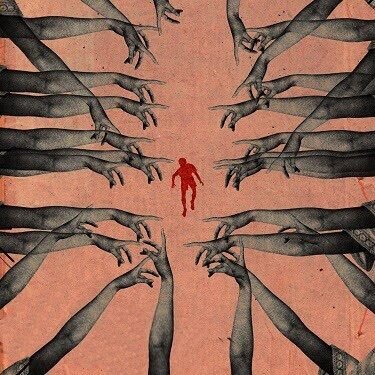Things Have Been Feeling Brutally Kafkaesque Lately
The year 2020 has certainly been no stranger to disaster. Since January, our society and government have faced many incomparable challenges. From election anxiety to virtual school, there has been this auto-depressive feeling in the atmosphere. But I feel as though this sensation is more than sadness or melancholy. I also believe that this is a very real phenomenon (and not just because I have been listening to “Pure Heroine” by Lorde on repeat for an entire week).
Over quarantine, and with more impending restrictions, many have had extreme difficulty adapting. Furthermore, according to a survey pushed out by the 2020 Kaiser Family Foundation, in mid-July of this year, 53% percent of adults reported that their mental health was negatively impacted by the implications of COVID, which is 32% higher than the numbers reported in March. Thus, anxiety numbers have been rising as this year progresses. Due to the many brutal and depressing events of this year, there is only one word that could best describe the atmosphere: Kafkaesque.
The dictionary definition of Kafkaesque describes situations that are disorientingly and illogically complex in a surreal or nightmarish way. This is slightly different from the term Orwellian, which describes a dystopian atmosphere that has totalitarian tendencies. The term Kafkaesque is derived from the author Franz Kafka, who is famously known for his unsettling novels. Throughout his novels, Kafka writes stories depicting odd adventures in which the protagonist will never quite understand the world around them. This is very similar to this weird and unexplainable lingering feeling in the atmosphere. Part of Kafka’s signature literary plot centers around the strange but unexplainable. For example, in his novel The Trial, the character Joseph K is arrested and put through an excruciatingly long trial. The catch - Joseph did not commit any crime, nor does he know the crime he is being tried for. This is certainly a representation of more authoritarian governments in addition to unnecessarily complicated judicial systems, not only in the United States but across the globe as well.
Kafka’s work is not only nightmarish in the way that a Steven King novel is. King focuses on appealing to people’s fears and then exposing them through his writing; his novel It is a prominent example of this. The most closely related modern-day example of a Kafkaesque piece is Ari Aster’s work. His film Midsommar holds a variety of different emotions from intense fear to happiness. But there is this looming feeling within the back of your mind as you watch Midsommar. Specifically, towards the end, you can find yourself empathizing with the main character Dani. She is in a mentally abusive relationship where her partner, Christian, has no remorse for her feelings and is blatantly self-centered. Thus, in the end, when we see Christian being sacrificed, we cannot help feel this sense of joy and fulfillment, even if we feel bad about it. Somehow, being happy to see someone’s abusive boyfriend burned alive while wearing a raw bear suit is, in a way, Kafkaesque. Of course, the main idea surrounding the term denotes an inescapable nightmare, but there is also a looming element of Saudade. That is, where the matters surrounding an issue are brutally frightening, but also, in a way, bittersweet, which is what this year has tended to lean towards. However, it is important to note that this harrowing feeling trumps this small feeling of happiness.
There is also the notion that events are perceived to be positive, when in fact they are mediocre. This phenomenon is valued by all of the devastating events that continue to fall around us. Take the Biden presidency for example. Joe Biden is the presidential-elect for this year's election, but he won only by a mere margin. As we sat glued to CNN or Fox, the anticipation of who would win sat constantly stirring within us: the race was too close for comfort. As we watched states flip between red and blue, we could not help but feel extreme senses of election anxiety. But was Biden’s win really that amazing? As I sat with my family watching the election, my father exclaimed “I still cannot believe that that fascist dictator got almost half of the country’s vote.” And it is true: even though Biden won both the electoral college and the popular vote, Trump still received over seventy million votes. So while this is a win, is it really a moral win? And this is where the term Kafkaesque comes into play: every ounce of society victory has an underlying nightmarish aspect.
